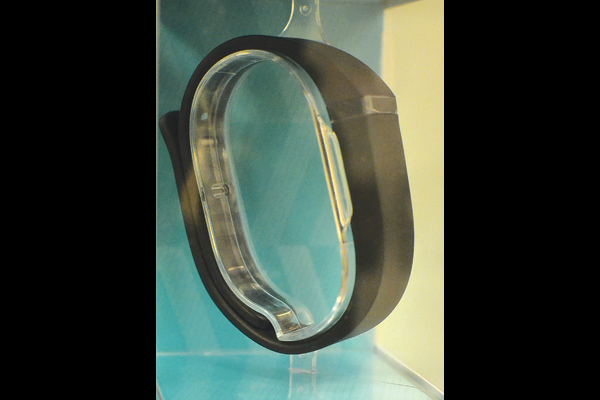Fitbit wristbands are useful—but maybe not necessary
Photo credit: Marta Kierkus
A new type of fitness products, branded Fitbit, promise to help you work towards a healthier you—but do they really work?
Let’s take a look at the products. First, there’s the Fitbit Zip for about $60. It’s a fun little tool that can count your steps, calories, and distance. Seeing what you’ve done for the day is supposed to be the motivation to keep going.
The Fitbit Flex is a bracelet that can monitor your activity 24/7 for $99. During the day, it counts steps, calories, and distance, and at night it tells you how long you slept, and when you rustled or woke up. It also vibrates to wake you up, instead of an alarm.
Third-year human kinetics student Emily Mrozinski is a Fitbit Flex user. Over the past year, she’s seen subtle changes in her health habits, and is happy with the bracelet so far.
“The Fitbit allows you to set up daily goals and reminders,” said Mrozinski. “Once you’ve reached the goal, a vibration on the bracelet will go off letting you know when your goal has been met. It helped me tremendously with tracking my sleep cycle.”
The Fitbit One essentially does what a Fitbit Flex can, but it’s a sleeker version for $99. Instead of having to wear it on your wrist all day and night, it clips onto you anywhere.
The Fitbit Aria scale for $129, is an additional tool that’s pretty cool. It can tell your weight, body fat, and body mass index, and it’ll update your online profile so you can track your changes over time. This scale is advanced since it can recognize up to eight different users. So, if you want to get healthier with your family, friends, or roommates, you can do it without each of you having to buy a $100 scale.
“I believe if someone is willing to track their progress thoroughly, the scale would help with further progress,” said Mrozinski. “It definitely helps with setting long-term goals.”
One problem you could come across, however, is if you keep the bracelet on all the time as recommended, you can trap moisture or soap underneath it, which can cause chafing.
This past February, there was a recall for the Fitbit Force due to 9,000 reports of skin irritation and 250 reports of blistering. Since then, Fitbit has tweaked its products.
The products are high-tech and useful if you don’t mind spending the money to find out how active you’ve been or when you moved around in your sleep. But then again, a free pedometer app could tell you almost as much.





